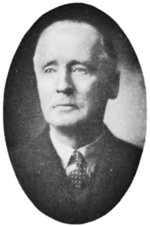Norbert Keenan facts for kids
Quick facts for kids
Sir Norbert Keenan
|
|
|---|---|
 |
|
| Leader of the Nationalist Party in Western Australia |
|
| In office April 1933 – April 1938 |
|
| Preceded by | Sir James Mitchell |
| Succeeded by | Ross McDonald |
| Member of the Legislative Assembly of Western Australia |
|
| In office 27 October 1905 – 3 October 1911 |
|
| Preceded by | William Johnson |
| Succeeded by | Albert Green |
| Constituency | Kalgoorlie |
| In office 12 April 1930 – 25 March 1950 |
|
| Preceded by | None (new creation) |
| Succeeded by | David Grayden |
| Constituency | Nedlands |
| Personal details | |
| Born | 30 January 1864 Glasnevin, County Dublin, Ireland |
| Died | 24 April 1954 (aged 90) Subiaco, Western Australia |
| Political party | Nationalist (1930–1945) Liberal (after 1945) |
| Other political affiliations |
Independent (1904) |
| Alma mater | Trinity College Dublin |
Sir Norbert Michael Keenan (born January 30, 1864 – died April 24, 1954) was an important Australian lawyer and politician. He was a member of the Western Australian Legislative Assembly, which is like the state parliament, for many years. He served from 1905 to 1911 and again from 1930 to 1950.
Sir Norbert also led the Nationalist Party in Western Australia from 1933 to 1938. During this time, his party worked with the Country Party to form a government. He also served as a minister in earlier governments.
Contents
Early Life and Career
Norbert Keenan was born in Glasnevin, County Dublin, Ireland. His father, Sir Patrick Joseph Keenan, was a well-known expert in education. Norbert went to Downside School in England for high school.
He then studied law at Trinity College Dublin. After finishing his studies, he became a barrister, which is a type of lawyer, in Ireland and England. In April 1895, Keenan moved to Western Australia. He settled in Kalgoorlie, where he worked for British investors.
In June 1901, he became the Mayor of Kalgoorlie. He held this position until December 1905. He then resigned to focus on his career in state politics.
Political Journey
Norbert Keenan first tried to enter state politics in 1904. He ran as an independent candidate for the Kalgoorlie seat but did not win. However, he won the same seat in the 1905 election. He was a supporter of the government at the time.
Serving as Attorney-General
In May 1906, Newton Moore became the premier. He chose Keenan to be his attorney-general. This role means he was the chief legal advisor to the government.
While in this job, Keenan led a special committee that looked at Western Australia's voting system. This committee suggested important changes, like using preferential voting. This system helps make sure the winner has more than half the votes.
Keenan was given much credit for the Electoral Act 1907, which came from these recommendations. This law is still used today. He also represented Western Australia at a meeting of state leaders in 1907. In May 1909, he resigned as attorney-general because he disagreed with some of the government's money policies.
Return to Parliament
Keenan did not run in the 1911 state election. He focused on his law practice and became a King's Counsel (KC) in 1908. He also served on the board of the University of Western Australia (UWA) from 1912 to 1918.
After more than 18 years, Keenan returned to parliament in 1930. He won the new Nedlands seat for the Nationalist Party. Soon after, he became the Chief Secretary and Minister for Education.
During the Great Depression, he made a tough decision to close Claremont Teachers College. This was done to save money. He resigned from his cabinet roles in September 1931 due to disagreements over government plans.
Party Leadership
In the 1933 state election, the government lost, and many Nationalist ministers lost their seats. Since Keenan was the only Nationalist left with experience as a minister, he was chosen as the new party leader.
His party had lost so many seats that they became the smaller partner in a group with the Country Party. The Country Party's leader, Charles Latham, became the Leader of the Opposition.
Keenan's party did not gain more seats in the 1936 election. In April 1938, he resigned as leader, partly because of his age and health. He was 74 years old at the time. Ross McDonald took over as leader.
Keenan continued to win his seat in elections, even against future senator Dorothy Tangney. In 1945, he joined the new Liberal Party. He ran for election again in 1950 at the age of 86. However, he did not win, and David Grayden became the new representative for Nedlands.
Family Life
Norbert Keenan passed away in Perth in April 1954, at the age of 90. He married Rose Elizabeth Parker in 1900, and they had two children. Rose's father, Sir Stephen Henry Parker, was the Chief Justice of Western Australia. Her uncle, George Leake, was also a Premier of Western Australia. Keenan was a Catholic.

